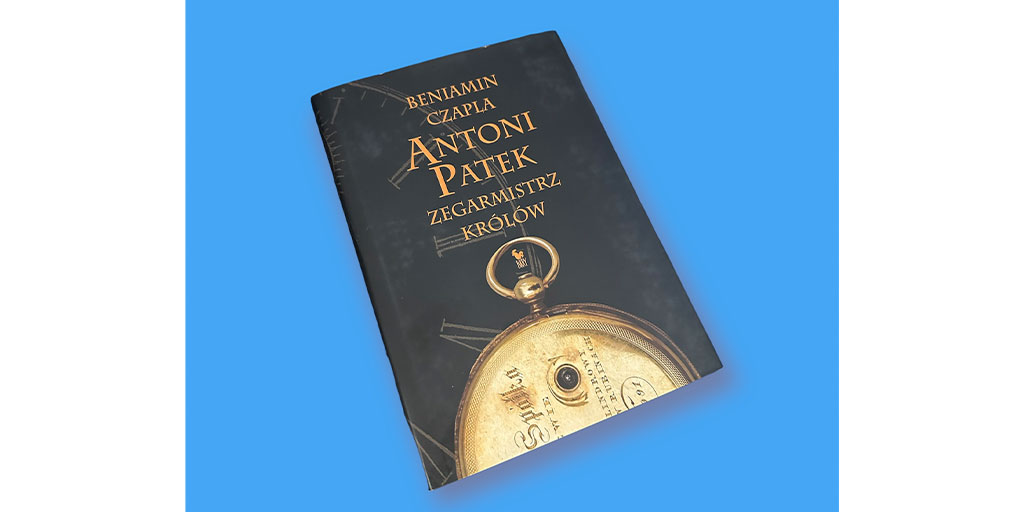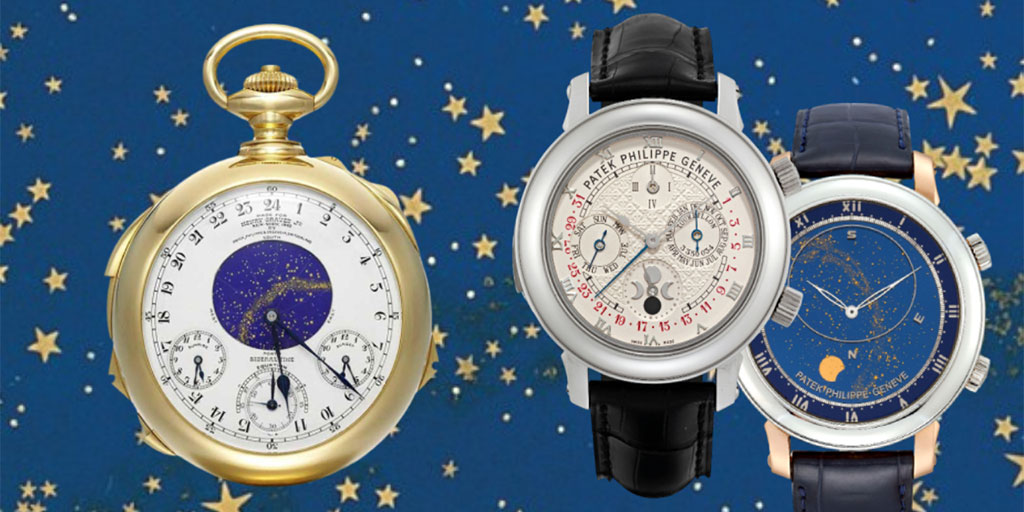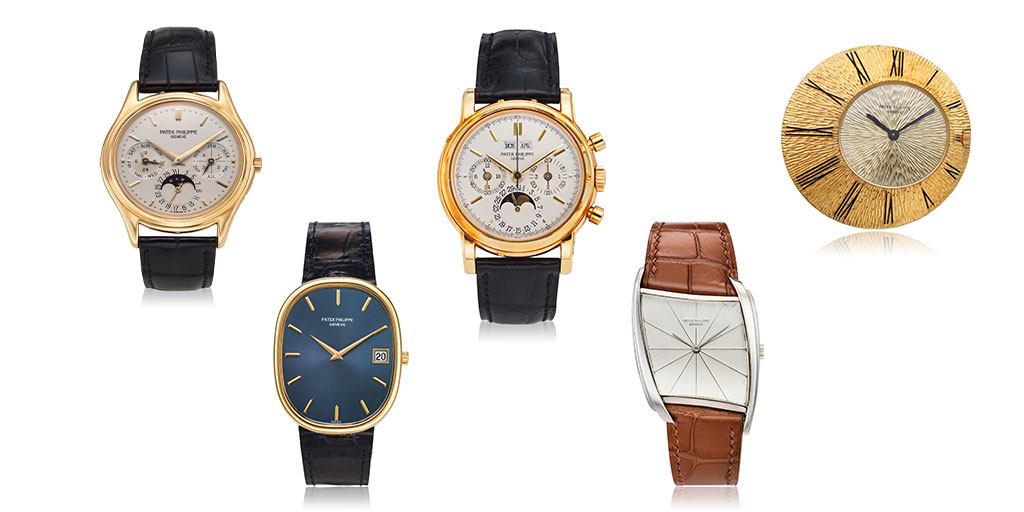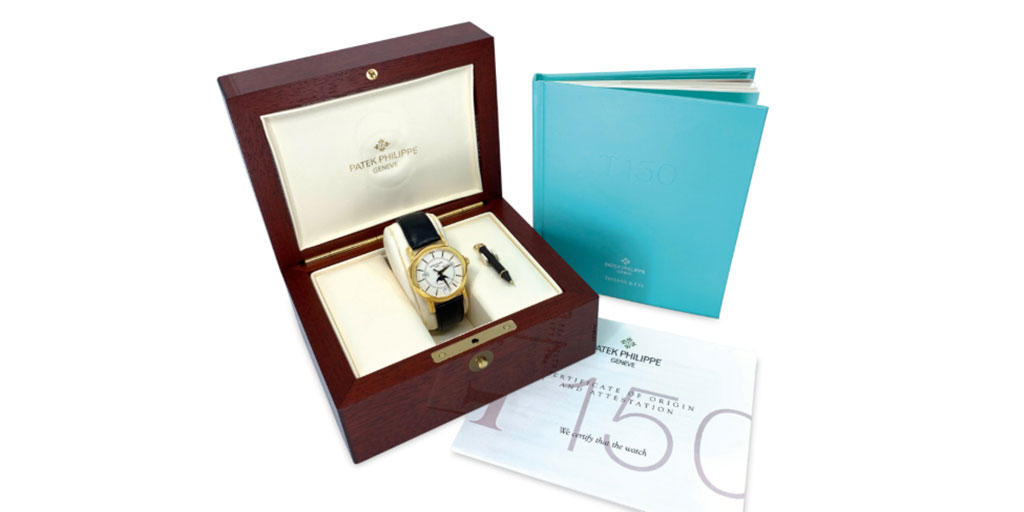Last year, Rafal Kluziak contacted me via Instagram to share the exciting news that a new book on the life and times of Antoni Patek (Antoine Norbert de Patek) has been published in Poland. He generously sent me an early copy of the book and I used Google translate to work my way through the book (it’s in Polish) and it was absolutely fascinating to read this groundbreaking new scholarship on the life of the founder of Patek Philippe. I asked if Rafal would be interested in writing a book review of this monumental new work and he kindly agreed. Enjoy this insightful review by Rafal of this new book and grab a copy on Amazon while they are still available! John Reardon.
It has taken 144 years since the death of Antoni Patek, one of the most famous Polish entrepreneurs, to have his first Polish biography written in Poland. Beniamin Czapla, a young historian from Poland, published his book “Antoni Patek. Watchmaker of Kings” (Antoni Patek. Zegarmistrz królów) in 2021 . Czapla conducted his PhD at the University of Silesia, researching the history of Polish emigration to Switzerland after the fall of the November Uprising (1830-1831). Since he is interested in watchmaking and its history, as well as the history of Polish emigration to Switzerland, writing Patek’s biography seemed like a natural move. It was not an easy task, because Patek’s life is mysterious with relatively few source materials that have survived to the present day. But Beniamin Czapla made efforts to find all the mentions of Patek in domestic and international archives, obtaining information that the authors of previous studies did not find because they focused mainly on the history of Patek Philippe the company. Hence, the book is very rich in references and quotes from source information that the author dug out from the archives.
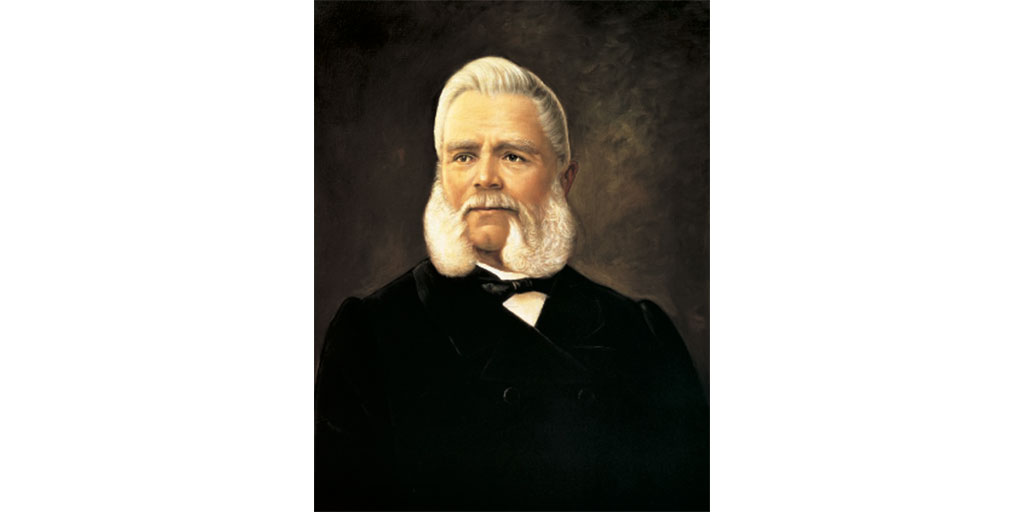
The book is much less focused on the watchmaking aspect then you probably would expect. It is more a story of Antoni Patek as a person and the times and events that surrounded him. I think it is a fresh approach, because in the 21st century his name is part of the trademark of the Patek Philippe brand. But Patek as a person was much more than that. The book presents Antoni Patek as a nobleman, participant in the November Uprising, an immigration activist in France then in Switzerland, and an entrepreneur involved in the development of Patek & Czapek first, and later Patek Philippe.
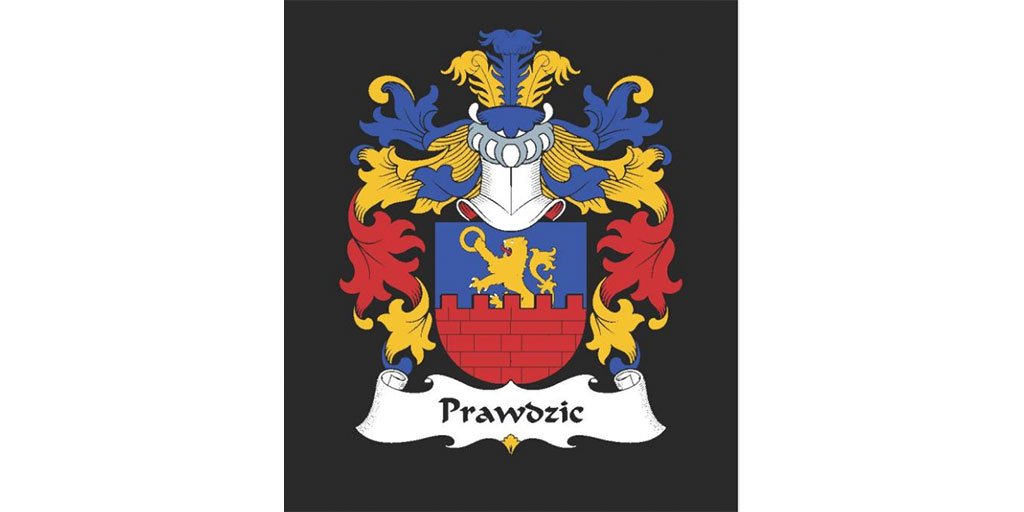
Antoni Patek’s biography starts with his youth and background. In 1812, he was born in Piaski Szlacheckie – 242 km from Warsaw, capital of Poland, to a noble family of military captain Joachim Patek. To give you context, in 1827, 15 years later, that small village where Patek was born had 57 houses and 318 inhabitants. The book includes an excerpt from baptism documents kept by the church. The source material provides a description of Patek’s closest circles and how he spent his first years of life, using fragments of letters to reflect the atmosphere at home. However, most of this chapter is devoted to the hero’s military activities. Patek may not have created watches if war with the Russian Empire had not taken place. Poland, under Russian occupation though the 19th century fought in the November Uprising. Young Polish officers and cadets, including Patek, started a revolt against the Russian occupation. Patek served as the second lieutenant in the 1st Regiment of Cavalry from Augustów. For his bravery he was decorated with the highest Polish medal – Virtuti Militari.
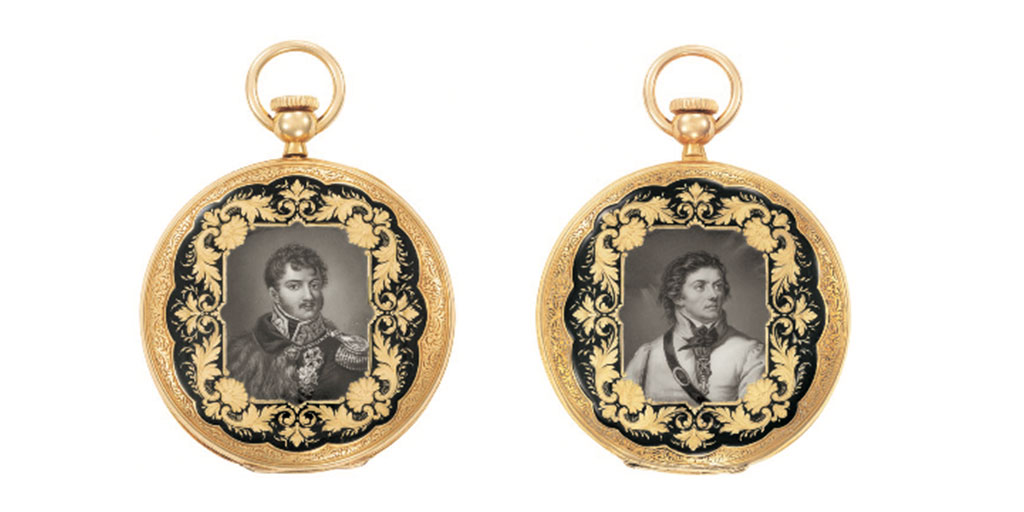
i zrobili” (patented invention) engraved on the cuvette indicate the watch employs Jean Adrien Philippe’s stem-winding system (patent No. 1317 of April 22, 1845). Image credit: Patek Philippe Museum
After the lost uprising, Patek together with many veterans, intellectuals and activists emigrated from Poland first to France and then to Switzerland. The book confirms that he was very active in the Polish emigration community, always helping his fellow Poles. Antoni Patek (aged 23 at the time) finally settled in Geneva in November 1835 and then in Varsoix . He married a niece of his landlord (Marie Adelaide Denisard) and settled in Switzerland forever.
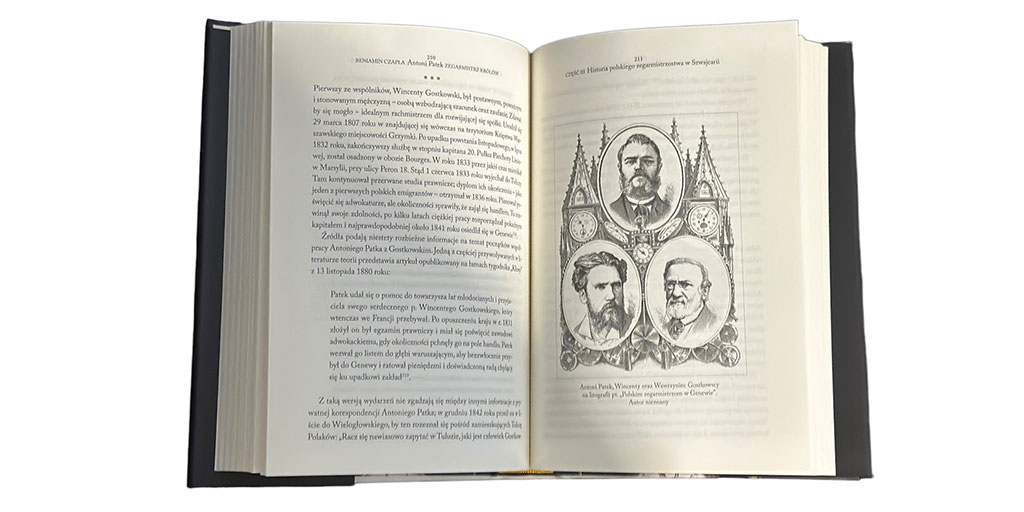
The second part of the book draws a detailed picture of the Polish emigration community especially in Geneva. The letters of many famous Poles serve as the source of information on the everyday life of Antoni Patek. The main issues are politics, particularly Patek’s political affiliation with Polish emigrants. Patek’s involvement in many initiatives, most often related to financial aid, are covered in this section. There is no doubt that Patek was very active in charities, showing concern for his countrymen and the fate of Poland in the 19th century.
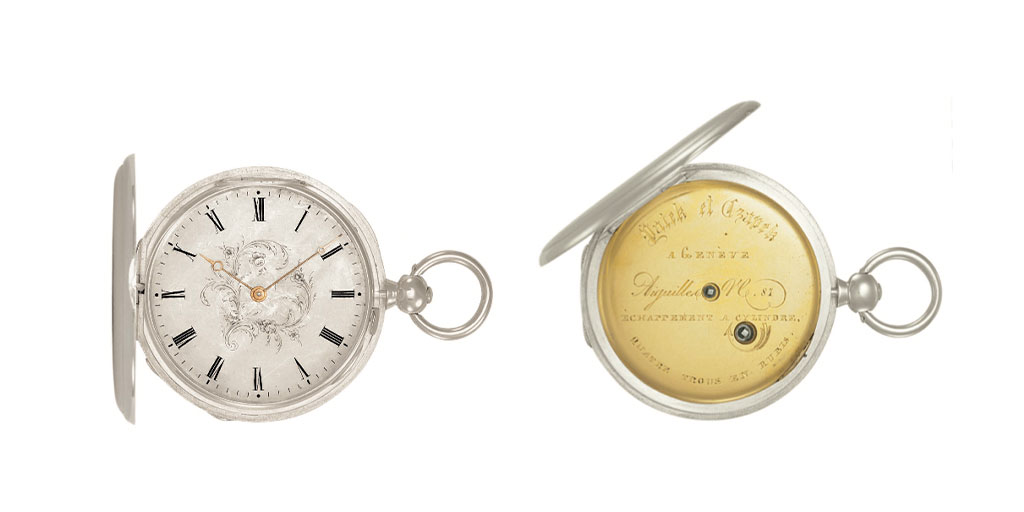
The third chapter of the book describes the most interesting sphere of Patek’s life, i.e., the beginning and development of his entry into the watchmaking business. It is here that the reader can see the author’s own knowledge and passion about watchmaking. Czapla presents readers not only with the fate of the company (including the period of Patek & Czapek), but also information on the history of Patek’s early watch production in Switzerland and beyond, in particular, the USA. We learn how the company founded by a Polish emigrant, who was not even a watchmaker by education, became one of the leading watch brands in the world. It was a bumpy road with many financial problems, and conflicts with his partners such as Czapek and the little-known financial partner, Gostkowski. The book shows Patek’s extraordinary business intuition with and his focus on quality, innovation and his own popularity among influential people and celebrities of that age. This section of the book is the most interesting for watch fans as we discover the transformation of an emigrant into a successful, visionary businessman creating Patek Philippe.
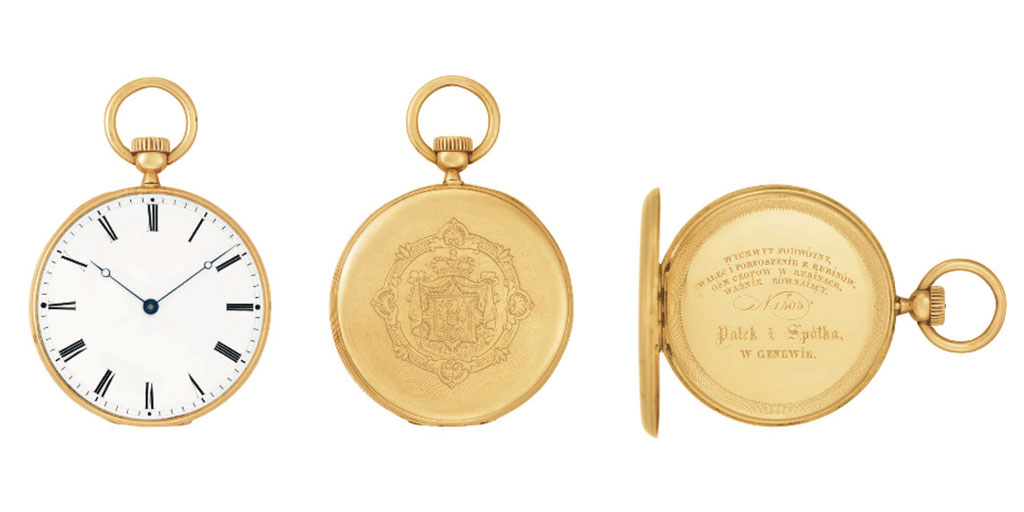
However, Patek’s work was interrupted by an illness. After his death, the company passed into the hands of his partner Adrien Philippe’s family, and Antoni Patek was, unfortunately, largely forgotten. Until the release of this book. I talked to Beniamin Czapla and he promised to continue his research into this fascinating man. Hopefully, an English language version may be published in a few years.
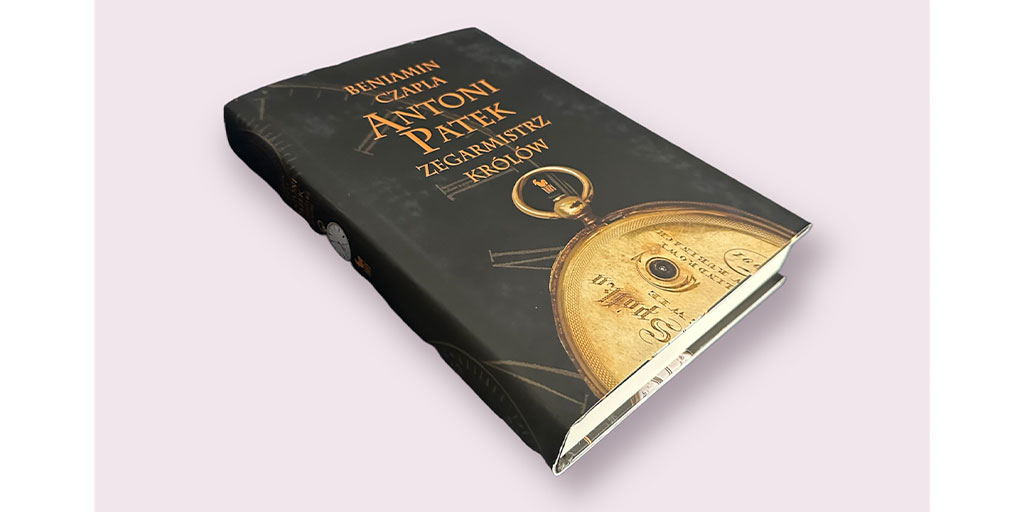
Antoni Patek deserved his first Polish biography. War hero, brilliant and creative entrepreneur whose links with Poland are largely forgotten. As a Pole myself, I felt proud reading a book that is not entirely focused on watches, because Antoni Patek was not either.
Collectability would like to thank Rafal Kluziak (@analog_ovo) for his insightful review of this important new scholarship on Antoine Norbert de Patek.

